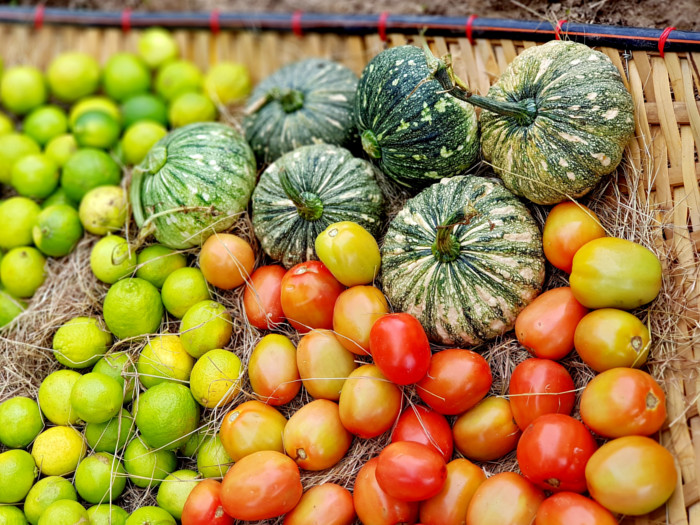Eating nutrient-dense foods is the most efficient way to boost your overall health, lose weight, and protect against chronic disease.
What Are Nutrient-Dense Foods?
Nutrient-dense foods are those foods that have a high concentration of vitamins, minerals, amino acids, proteins, and antioxidants but are comparatively low in calories. If you are already eating a traditionally “healthy diet”, you are likely eating a good amount of these foods already. However, for those struggling with their health, or having difficulties losing weight, it is a good idea to shift your diet to include more of these foods.
There is not one perfect diet for everyone, and your nutrient intake will vary based on many factors. However, generally speaking, foods that are largely unprocessed and don’t have high levels of additives and chemicals are considered nutrient-dense. The problem that faces the world today, in terms of nutrient intake, is that the vast majority of calories come from a limited number of foods, many of which aren’t the most efficient ways to consume the nutrients you need.

Nutrient-dense foods include whole grains, low-fat or fat-free milk products, seafood, lean meats, eggs, peas, beans, nuts and more. Photo Credit: Shutterstock
List of Nutrient-Dense Foods
The best nutrient-dense foods in your diet should include kale, garlic, shellfish, liver, sardines, egg yolks, cantaloupe, blueberries, dark chocolate, tomatoes, cabbage, wild rice, and beets, among others.
Kale
This leafy green vegetable is packed with B vitamins, copper, potassium, phosphorous, vitamin C, vitamin K, protein, iron, and magnesium. [1]
Garlic
Along with sulfuric compounds and antioxidants, garlic offers manganeses, vitamin B6, copper, and vitamin C in high levels, as well as moderate amounts of selenium, calcium, and phosphorous. [2]
Shellfish
Being very low in saturated fat, but high in omega-3 fatty acids, as well as iron, copper, and zinc, these fish species are excellent nutrient-dense foods.
Liver
All the B vitamins, as well as high levels of iron, are available in liver, not to mention a concentrated form of bioavailable protein. [3]
Sardines
These fish have huge levels of vitamin B12 and selenium, as well as very good amounts of phosphorous, vitamin D, and omega-3 fatty acids, among others. [4]
Egg Yolks
One of the best sources of pure protein, egg yolks also provide impressive amounts of selenium, phosphorous, magnesium, calcium, and potassium.
Tomatoes
These delicious vegetables/fruits provide lycopene and other antioxidants, as well as vitamin E, B vitamins, manganese, dietary fiber, vitamin A, and vitamin C. [5]
Cantaloupe
Along with high levels of vitamin A and vitamin C, cantaloupe is able to provide potassium, vitamin K, dietary fiber, and magnesium.
Seaweed
Rich in minerals, such as zinc, magnesium, selenium, iron, and folate, this food is one of the most nutrient-dense foods available in your diet. [6]
Salmon
This popular fish variety can deliver omega-3 fatty acids in impressive amounts, along with vitamin D, vitamin B12, and selenium. This fish is also an excellent source of protein.
Blueberries
Known as a superfood due to its high antioxidant content, blueberries also contain high levels of dietary fiber, vitamin K, vitamin C, and manganese. [7]
Quinoa
Quinoa is a great option for gluten-free dieters, but it is also a rich source of protein, fiber, iron, magnesium, phosphorous, and manganese, among others.
Asparagus
This root vegetable is very high in vitamins, including A, E, C, and K, in addition to moderate amounts of accessible protein and dietary fiber. [8]
Mushrooms
These fungi are high in antioxidants, but also in minerals and vitamins, such as folate, iron, zinc, vitamin B6, and vitamin D.
Parsley
High in vitamin A, C, and K, as well as iron and folate, this herb is also rich in volatile organic acids, antioxidants, and active ingredients. [9] [10]
Potatoes
Potatoes possess a huge amount of vitamin C and potassium, as well as important starchy carbohydrates for energy.
